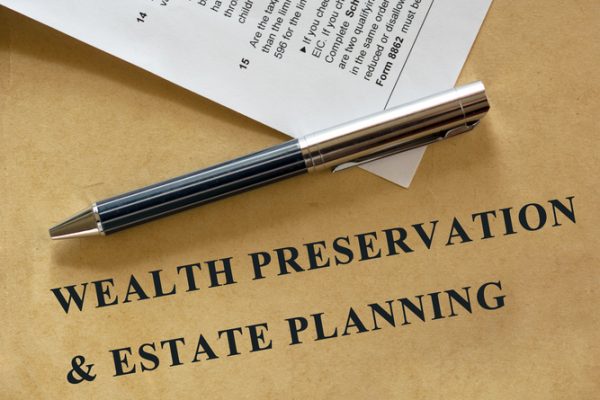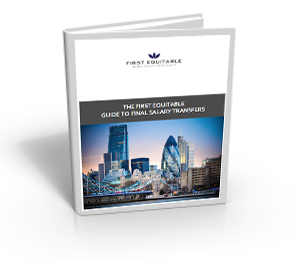Should I keep my final salary pension?

With the new pension freedoms now in force, the pensions industry are bracing themselves for the predicted wave of savers that will be looking to take advantage of the new rules and potentially cash in their entire schemes.
Whilst holders of final salary pensions are not able to swap their fund for cash directly, they can instead request a cash transfer value from their employers and then transfer their benefits to a defined contribution (also known as a money purchase) scheme. Under the new rules, members of defined contribution schemes will be able to withdraw their entire fund as income, once they reach the minimum retirement age, which is currently set at age 55. Now whether this represents a good choice is a separate issue, as any income withdrawn over and above the entitlement to a 25% tax free pension commencement lump sum (PCLS), will be taxed as income tax, so higher rate tax of 40% will be paid on income between PA (Personal Allowance) +£31,786 and £150,000 and 45% on income over £150,000.
However, let’s put pension freedoms to one side for a moment, as the question that is now being asked by many is simply this:
Is my final salary pension scheme safe?
Recent comments from a senior official within the pensions industry has suggested if everyone decided to transfer out to take advantage of the new rules there would only be enough cash to pay around 60% of those pensions.
For many years these schemes were always referred to as ‘gold plated’ and were envied by people with less generous arrangements, however recent reports have caused widespread concern, following comments from the chief executive of the Pension Protection Fund (PPF), Alan Rubenstein, who said that savers were being “misled”over the safety of their pension schemes.
Mr Rubinstein went on to say that five out of six final salary schemes were now in the red and will face a battle to pay savers a full pension. There are a reported 11 million people that have a ‘guaranteed’ and inflation linked pension, and whilst members were being led to believe their pension was safe, he claimed “for many that isn’t the case”.
The comments provide a stark warning to savers to ensure they remain prudent with all areas of their pension planning and ensure they understand the implications of what would happen if their scheme did not pay out as had been promised. The head of the government set up PPF scheme said:”It is misleading to allow people to expect promised pensions when in fact there is only enough money to pay about 60 per cent of those pensions [if they were cashed in today] and where nothing is being done about the shortfall.”
Latest statistics from January showed that the number of companies facing pension deficits, which put simply means the assets held in their schemes will not be sufficient to meet the pensions that are due to be paid out, has risen to 5,175. In further damning statistics, the aggregate balance of the schemes in deficit has fallen to £367.5 billion, compared with just £46.4 billion just a year earlier. The large deficits are being sited as a consequence of the Bank of England’s low interest rates and quantitative easing policy, which has pushed down bond yields. There is regulation that links bonds and pensions, which means that as yields drop, total pension liabilities rise. What then happens is that companies must find the cash to meet their rising pension liabilities and hopefully they will have big enough reserves to cover the payouts that they are due to make.
What happens if my final salary pension scheme fails?
If your company is unable to meet their promises then it would be taken over by the PPF. In this scenario, if you are already in receipt of your pension, and you have also reached the scheme retirement age (that is you have not taken early retirement), then you will receive 100% of your pension. Typically you will also receive 100% if you have retired early on legitimate ill health grounds, and also those who are receiving a pension in relation to someone who died at the time that the employer went bust. If you are not yet receiving your pension, or you are receiving your pension but have not yet reached the scheme retirement age (that is you have taken early retirement), then you will be eligible to receive 90% of your original pension, although this will be capped at approximately £36,000, in 2015 (so around£32,400 when the 90% level is applied). This will depending on your age as it will be less if you retire before age 65, to compensate for the longer time you will be receiving payments.
One high profile scheme that has made headlines for the wrong reasons in recent months is the pension scheme of Monarch Airlines, as the scheme is being taken over by the PPF following a restructuring of the company. There was not sufficient money to meet the pension promise the company made in earlier years, so employees will now be reliant on the PPF. Many of the airline staff’s pensions will fall below the cap, so they will receive 90% of what they were promised, however, for many higher earning pilots, they are likely to see drastic cuts to previously promised pensions of up to £50,000 or more.
I am concerned about the safety of my scheme, are there other options?
There are options that can be explored as an alternative to leaving the funds in your employer scheme, and this is to transfer the funds to a defined contribution scheme such as a SIPP (Self Invested Personal Pension) or a if you have left the UK and don’t plan to return, a QROPS (Qualifying Recognised Overseas Pension Scheme). It is important to remember however, that if you transfer out of your scheme, whilst the transfer value might look attractive, you will be giving up guaranteed benefits, and these would typically increase inline with inflation. Therefore a critical yield analysis will need to be made and whether it is realistic for these benefits to be matched or bettered by investments you purchase within the new scheme. Of course there are other factors to consider as well, as within a defined contribution scheme the amount of income you can withdraw is no longer limited, and furthermore, on your death, benefits in a QROPS for example, can be passed on to your beneficiaries in their entirety. For some, this will be much more attractive than a 50% spouses pension, as is usually paid to the surviving spouse on the death of a member of a final salary scheme.
We would consider this a very complex area, as a number of points in this article highlight, and the requirement for each individual to obtain professional financial advice, from an experienced UK qualified adviser, is of paramount importance.
If you have any questions or would like to request your own free pension review, please fill out our online contact form and one of our experts will be in contact with you.




